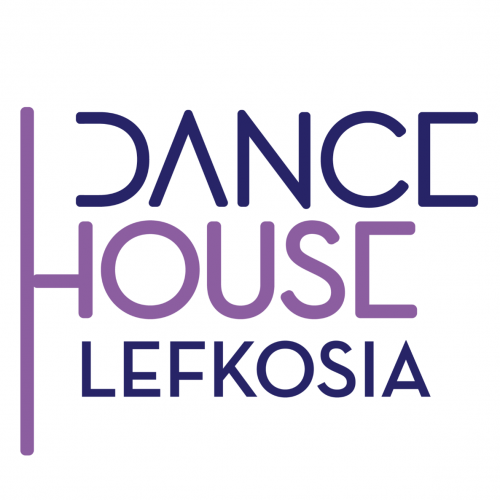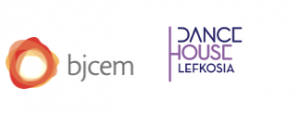
Open Call GATHERING SPELLS
10 Maggio 2023
Open Call – Beyond Boundaries
22 Novembre 2023Open Call BOW – BODIES OF WORK #2

WHAT IS BOW – BODIES OF WORK #2
BOW – Bodies of Work #2 is the second edition of a five-day intensive theoretical and performative training program supported by the Department of Modern and Contemporary Culture
– Ministry of Education and Culture of Cyprus and developed in collaboration with BJCEM – Biennial of Young Artists from Europe and the Mediterranean and Dance House Leftkosia.
This second edition will take place in Nicosia, at the Dance House Lefkosia, from the 6th to the 10th December 2023 and will be curated by the curators and the fellows of the 4th edition of A Natural Oasis? (Alessandro Castiglioni, Simone Frangi with Joachim Aagaard Friis Marie-Nour Hechaime, Marie Hervé, Klodiana Millona, Stefano Mudu, Evagoras Vanezis) and Petros Konnaris, artistic director of Dance House Lefkosia.
For the second edition of BOW – Bodies of Work, the program will renounce the hierarchical organization of learning and training spaces between mentors and mentees to shift towards an horizontal situation of practice sharing and communal physical thinking, aimed to generate reflections around pivotal questions of our contemporary world.
The working group of BOW – Bodies of work #2 will be composed by:
- 9 curators of the program
- 5 invited artists from the performative scene of Cyprus
- Up to 5 artists under 35 from the expanded region of the Mediterranean selected through an international Open Call disseminated by BJCEM within its network.
GENERAL CURATORIAL CONCEPT
The artistic engagement with the territory of Cyprus proposed by BOW – Bodies of Work will enable participants to revise and question, through sensitive speculative practices in situ, the epistemological, ontological and ethical levels of what we generally define “research” and “art-making”. The will of “operating together” as a heterogeneous working group hosted by the more or less manifest complexities of Cyprus responds to the need of training a less Eurocentric and not fully rational gaze on mediterranean territories and challenges the primacy of what has been so far visible and seen in the frame of the colonial modernity. BOW – Bodies of Work has in particular the ambition of putting in place a mutual training looking at alternative imaginative geographies on what has been progressively constructed as The Levant. The majority of research on this region has been in fact “anthropological” and inherently indebted to colonial epistemologies. BOW – Bodies of Work #2 proposes to engage in the performative production of “narratives” suggesting a way of practicing research that leaves room for speculation and unexpected pairings of events. The program of activities of the second edition of BOW – Bodies of Work is conceived as an attempt to answer collectively, in situ and with the body to the fundamental question of how to work with “narratives” in a process of de-romanticization of a territory such as Cyprus. The general curatorial concept of the program resonates with the idea of sympoiesis (Donna Harraway) and symbiogenesis (Lynn Margulis): the idea of bodies’ mobility pushes us to investigate the way in which human and non-human actors become together in order to create new realities and to find new ethos of coexistence. Borrowing the lens of the symbiosis – the system in which members of different species live in physical contact – urges us not to exclude a reflection/investigation on the complex human and non-human relationships that occur in Cyprus. A place like Nicosia (with its surroundings) could be seen as a living organism in which different actors’ networks (Bruno Latour), and where borders defined by ecological, socio-political and cultural factors are porous and permeable. In this entangled system, the artistic agency has the ability to foster communities beyond the human. What kind of artistic scenarios and public interfaces are operative today, in a time of uncertainty, radical instability and environmental collapse? The intersection between colonialism, gender, sexuality and the environment contextually relates to the concept of “sex ecologies”, which explores gender, sex, and sexuality in the context of ecology. The concept is founded in the belief that environmental and social justice go hand in hand. Through a transdisciplinary approach, it critiques understandings of nature, gender, sexuality, and race that attempt to objectify and naturalize them. For example, “laws against nature” used to criminalize queer sexuality, and in many places still do. These norms are justified through evolutionary narratives exclusively permitting heterosexual reproduction. Everything that does not fit this norm is considered unhealthy, polluted, or “degenerate.” These norms have proven detrimental to humans and to the “thing” we pretentiously call “nature”.
OBJECTIVES OF BODIES OF WORK #2
In the context of BOW, the “exploration” of Cyprus will provide a prism from which we would be able to consider also its larger surrounding territories. The working group will depart from Cyprus and its specificities but imagine a cosmo-ecology that could encompass our own territories.
Departing from a situated reflection on Cyprus as a territory (as a body of water and a body of land) the program seeks to question and open lines of enquiries into widely accepted notions of territory built on geo-political fractures, legal notions, propagandas, and human mythologies.
To do so, the activities of the program will expand on mobility, movement, and displacement and what it is able to create as a space of reflection, opening up possibilities towards inventing new speculative pasts. One of the possible “narrative” which could emerge from the program relies for instance on the figure of the Olive. A speculative notion like “the territories of the Olive” – that encompass a large part of the expanded Mediterranean – could help to deconstruct the (neo)colonial fetiche of The Levant and to give a post-identarian consistency to a region outside national or continental exacerbated rethorics.
Performative narratives: at Dance House (curated by the 5 international invited artists under 35): Afternoon and Evening sessions for the 3 central days of the program (7th, 8th and 9th December 2023). Each session will be lead by one of the 5 internationally selected artists (under 35) and will be conceived as an open studio mixing staged performances, discourse and presentations of research material such as films, sound, songs or reading.
ELIGIBILITY CRITERIA AND APPLICATION PROCEDURE
The call is open to artists with an interest in the cultural and artistic productions in the Mediterranean and a practice rooted in performance. In order to be eligible candidates have to be under 35 (born after 1987) and come from or be based in the following territories:
- Algeria, Egypt, Jordan, Lebanon, Libya, Morocco, Palestine, Syria, Tunisia (one availabile position)
- Portugal (one available position)
- Norway (one available position)
- UK (one available position)
- Montenegro (one available position)
Eligible candidates shall send the following application material:
- Portfolio: An updated book documenting their artistic practice and their past and current projects, highlighting their interest in the cultural and artistic productions in the Mediterranean and in performance (compressed Pdf, Quick Time or MP3 formats of max. 6MB).
- Application form, downloadable HERE:
All the dossiers (portfolio and application form) shall be sent to application@bjcem.org, not later than November 2nd, 2023, at 1 pm Italian time. Any application not complying with the requirements will be automatically rejected.
TERMS
- The participation to this call is free of charge.
- Each selected candidate will be provided by BJCEM all the expenses related to the participation to the residency (tickets, accommodations, fee, per diem)
- The participants will be selected during the weeks following the deadline for application detailed in the announcement and selection results will be communicated immediately on BJCEM website (bjcem.org). The selected participants will be contacted by e-mail.
NOTES
This call and the participation in this project do not preclude the possibility to apply for future BJCEM national and/or international calls with different personal projects. All the artists who have already participated in the previous editions of the Biennale can apply to this call. Priority will be given to artists who have never attended previous BJCEM events.
Organized by BJCEM in collaboration with Dance House Lefkosia

Special thanks for supporting the artists’ attendance to the program, to Department of Modern and Contemporary Culture – Ministry of Education and Culture of Cyprus; CPAI – Clube Portugues de Artes e Ideias – Portugal; UKNA – UK New Artists – UK; Fluks – Center for Young Art – Norway; Ministry of Culture – Montenegro

